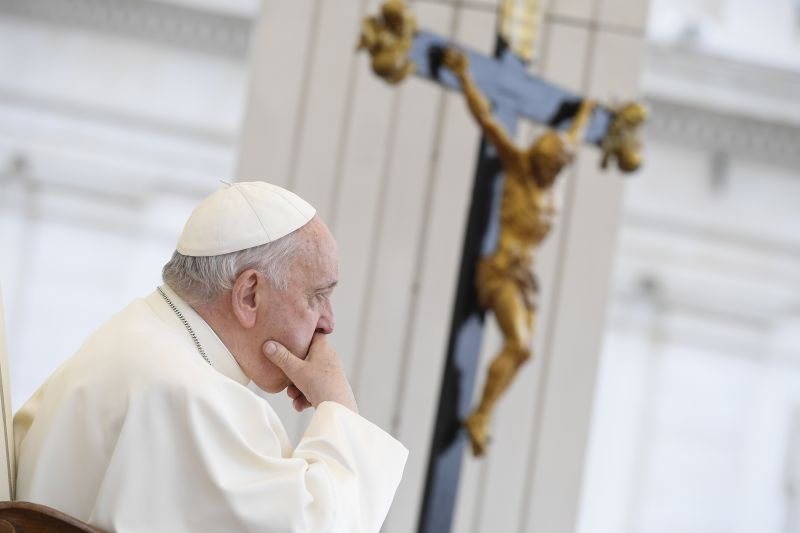
Putin warns West of nuclear war risk over Ukraine troop deployment
 In this pool photograph distributed by Russian state agency Sputnik, Russia’s President Vladimir Putin delivers his annual state of the nation address at the Gostiny Dvor conference center in central Moscow on Feb. 29, 2024. / Credit: GAVRIIL GRIGOROV/POOL/AFP via Getty Images
In this pool photograph distributed by Russian state agency Sputnik, Russia’s President Vladimir Putin delivers his annual state of the nation address at the Gostiny Dvor conference center in central Moscow on Feb. 29, 2024. / Credit: GAVRIIL GRIGOROV/POOL/AFP via Getty Images
CNA Staff, Feb 29, 2024 / 16:05 pm (CNA).
Russian President Vladimir Putin in a speech on Thursday cautioned that any Western military intervention in support of Ukraine could potentially lead to nuclear conflict.
“[The West] must understand that we also have weapons that can hit targets on their territory,” Putin, who is widely expected to hold onto power in an upcoming election, said in a Feb. 29 speech to Russia’s Federal Assembly.
Warning of “tragic consequences” if NATO forces were ever deployed to Ukraine, Putin continued, as reported by the Washington Post: “All this really threatens a conflict with the use of nuclear weapons and the destruction of civilization. Don’t they get that? … [Russia’s] strategic nuclear forces are in a state of full readiness.”
Putin’s speech came two days after French President Emmanuel Macron suggested that the deployment of foreign forces to Ukraine remained an option.
“We will do everything needed so Russia cannot win the war,” Macron said at a news conference. He said there is no consensus to “send in” troops on the ground, but said “nothing can be ruled out.”
In response to Macron’s remarks, the Vatican’s secretary of state, Cardinal Pietro Parolin, said the idea that Europe could send ground troops to Ukraine opens a “frightening scenario” that could “bring about the escalation that we have always tried to avoid from the beginning.”
“It’s a scenario that I wouldn’t call apocalyptic because perhaps that’s an exaggerated word at this moment, but certainly it’s fearsome,” Parolin said Feb. 27, as reported by Vatican News.
The cardinal, who has called for peace in Ukraine but also previously warned of the dangers of escalation, lamented that “no prospect of a solution on the horizon, be it military or negotiated.”
“It would be ideal to really find a way to get the two sides to start talking and dialoguing,” Parolin added to Vatican News. “I believe that if we talk, a solution will be found.”
Pope Francis has spoken before of the danger of the possibility of a nuclear war “that will extinguish us.” The pope’s words came shortly after the start of the war in Ukraine, at the start of which Putin ordered Russian nuclear forces to be put on high alert, raising fears of the possibility of a nuclear war.


